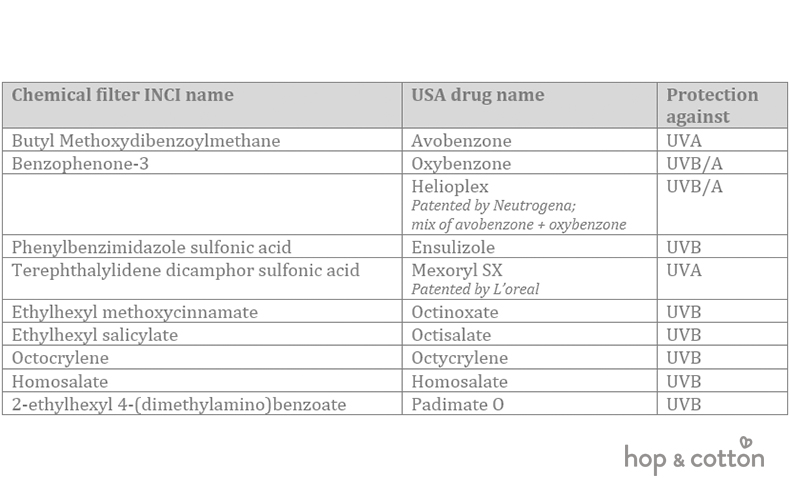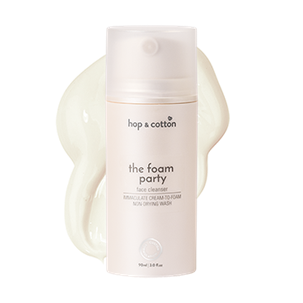Physical vs Chemical Sunscreens

Sunscreens protect us from UV radiation, the biggest contributor to premature skin ageing.
As mentioned previously, sun filters are the ingredients in sunscreens that protect us from UV rays. These filters work using a chemical or physical mechanism that prevent UV from entering our skin.
Physical Sun Filters
Physical filters reflect UV radiation from skin’s surface. There are only two physical sun filters to date
- Zinc oxide: UVA and UVB protection
- Titanium dioxide: UVB protection
The best feature about physical sun filters is their inertness or non-reactivity, making them suitable for extremely sensitive skins. They provide UV protection for as long as they remain on skin surface.
On the down side, as physical filters are white pigments, they can give a ‘white-cast’ upon application and/or flash photography. Traditionally, they have not been cosmetically elegant due to these pigments being insoluble in both oil and water. Fortunately, technological and engineering advances have gradually alleviated both issues.
Chemical sun filters
Chemical filters protect skin by absorbing UV and converting it to heat then releasing it from the skin. Unlike physical filters, there are numerous kinds of chemical filters. Not all of them are legally recognised for use as sun filters globally. Below are some commonly used ones approved in AUS, US and EU. You might recognise them by their common drug names instead of their chemical (INCI) names.

Chemical filters are oil-soluble, thus generally easier to formulate into sunscreens that are more pleasant in texture (more fluid/spreadable) and finish (colourless) compared to their physical counterparts.
However, their reactive nature (absorbing then dissipating UV to heat) means they can cause unwanted reactions such as redness, stinging/burning sensation or rashes. Their protective capability diminishes with amount of sun exposure, thus reapplication is necessary if you are going to spend all day outdoors or engage in physical activities like swimming. Chemical filters also add that characteristic ‘sunscreen smell’ to sunscreens.
Physical and chemical filters each have their own pros and cons. You have the luxury to choose from either one if your skin is not particularly sensitive to products.
What if I always breakout with sunscreens?!
Those with sensitive or acne-prone skin will fare better with physical sunscreens. Those particularly prone to clogged pores might also want to look out for the following features in your daily sunscreen, assuming you spend most of your time indoors
- Zinc oxide only: Titanium dioxide can sometimes be clogging
- Oil-free: Acne-causing bacteria/yeast feed on plant oils/butters to grow and thrive
- Minimal oil thickeners: Too much of these occlusive ingredients (e.g. beeswax, cetearyl alcohol) can be pore-clogging
- Non-waterproof: High oil content and strong film-formers help sunscreens stick well to skin resisting water; but both contribute to congestion
Whether it is physical or chemical, the best sunscreen is the one you can use daily and consistently. If you have never found a sunscreen you can wear without suffering irritation or congestion; or just dislike how they feel, we have just the thing for you coming very soon!


